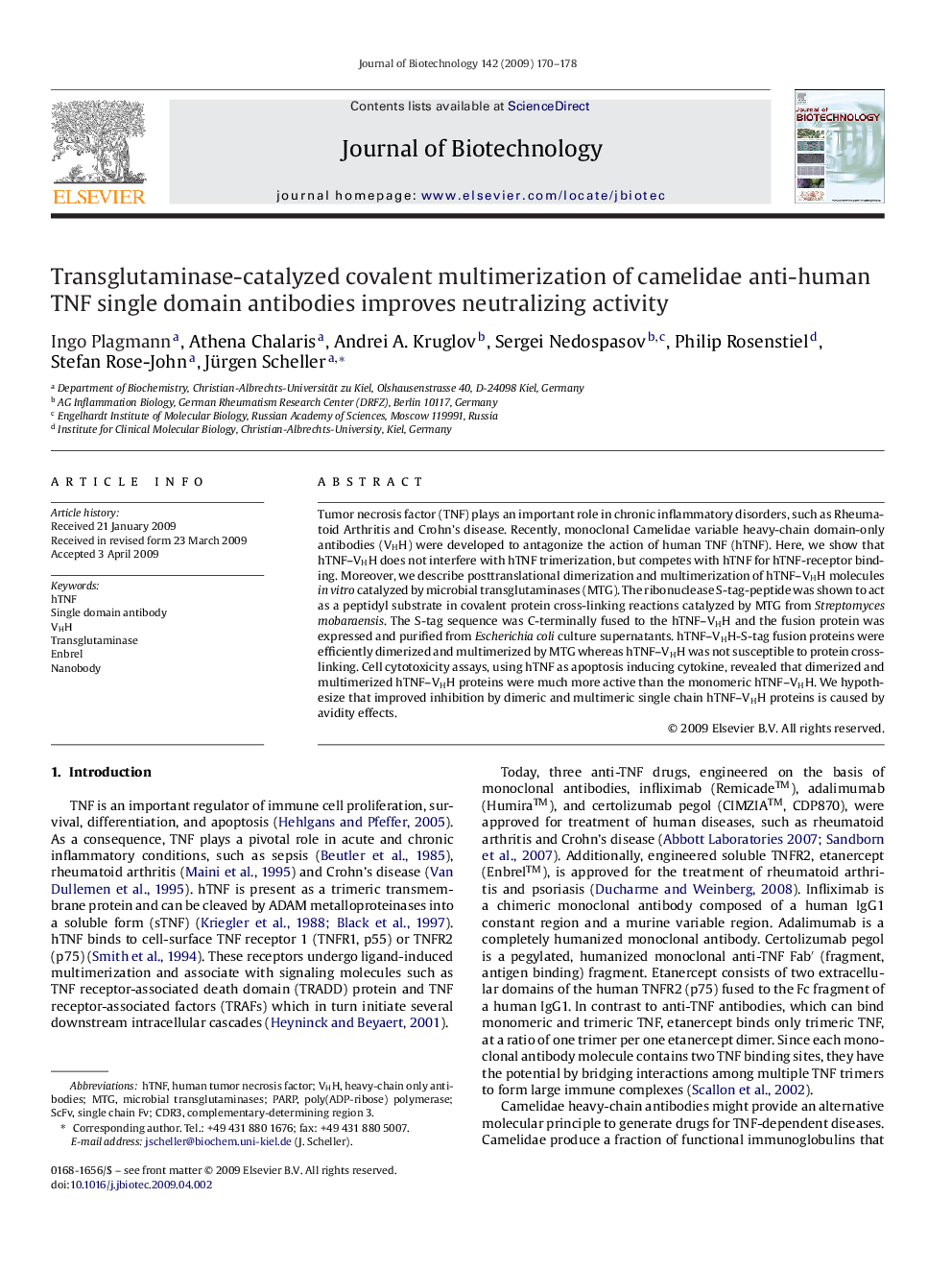| کد مقاله | کد نشریه | سال انتشار | مقاله انگلیسی | نسخه تمام متن |
|---|---|---|---|---|
| 24590 | 43528 | 2009 | 9 صفحه PDF | دانلود رایگان |

Tumor necrosis factor (TNF) plays an important role in chronic inflammatory disorders, such as Rheumatoid Arthritis and Crohn's disease. Recently, monoclonal Camelidae variable heavy-chain domain-only antibodies (VHH) were developed to antagonize the action of human TNF (hTNF). Here, we show that hTNF–VHH does not interfere with hTNF trimerization, but competes with hTNF for hTNF-receptor binding. Moreover, we describe posttranslational dimerization and multimerization of hTNF–VHH molecules in vitro catalyzed by microbial transglutaminases (MTG). The ribonuclease S-tag-peptide was shown to act as a peptidyl substrate in covalent protein cross-linking reactions catalyzed by MTG from Streptomyces mobaraensis. The S-tag sequence was C-terminally fused to the hTNF–VHH and the fusion protein was expressed and purified from Escherichia coli culture supernatants. hTNF–VHH-S-tag fusion proteins were efficiently dimerized and multimerized by MTG whereas hTNF–VHH was not susceptible to protein cross-linking. Cell cytotoxicity assays, using hTNF as apoptosis inducing cytokine, revealed that dimerized and multimerized hTNF–VHH proteins were much more active than the monomeric hTNF–VHH. We hypothesize that improved inhibition by dimeric and multimeric single chain hTNF–VHH proteins is caused by avidity effects.
Journal: Journal of Biotechnology - Volume 142, Issue 2, 15 June 2009, Pages 170–178